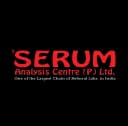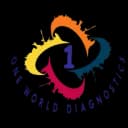Bilirubin, Total
Sample Type
Blood
Tube Type
Clot Tube
Fasting Required
12hr
Lab
Serum


Overview
Total Bilirubin is a blood test that measures the combined levels of direct (conjugated) and indirect (unconjugated) bilirubin in the blood. Bilirubin is a yellow pigment formed during the breakdown of red blood cells. It is processed by the liver, stored in the gallbladder, and eventually excreted in bile.
This test is commonly used to:
Evaluate liver function
Diagnose causes of jaundice
Assess hemolytic anemia
Monitor newborn jaundice
Test Result Interpretation
Bilirubin, Total Test Result Interpretation:
Total Bilirubin Level | Value Range (mg/dL) | Interpretation | Possible Causes |
|---|---|---|---|
Low/Normal | 0.2 – 1.2 mg/dL | Normal liver function and red cell turnover | Healthy status |
Mildly Elevated | 1.3 – 3.0 mg/dL | Slight increase in bilirubin | Gilbert’s syndrome, fasting, mild hemolysis |
Moderately Elevated | 3.1 – 10 mg/dL | Noticeable jaundice | Liver disease (hepatitis, cirrhosis), bile duct obstruction, hemolytic anemia |
Severely Elevated | > 10 mg/dL | Significant pathology | Severe liver failure, neonatal jaundice, hemolytic crisis, cholestasis |
Types of Bilirubin (for differential diagnosis):
Type | Component | Associated Conditions |
|---|---|---|
Direct (Conjugated) | Processed by liver, water-soluble | Hepatitis, bile duct obstruction, cholestasis |
Indirect (Unconjugated) | Not yet processed by liver, fat-soluble | Hemolysis, Gilbert’s syndrome, newborn jaundice |
Risk Assessment
Neonates: A total bilirubin level > 15 mg/dL requires urgent assessment to prevent kernicterus (brain damage due to bilirubin toxicity).
Fasting, dehydration, or strenuous exercise may temporarily increase bilirubin levels.
Abnormal values should be correlated with ALT, AST, ALP, and liver imaging for a full hepatic profile.